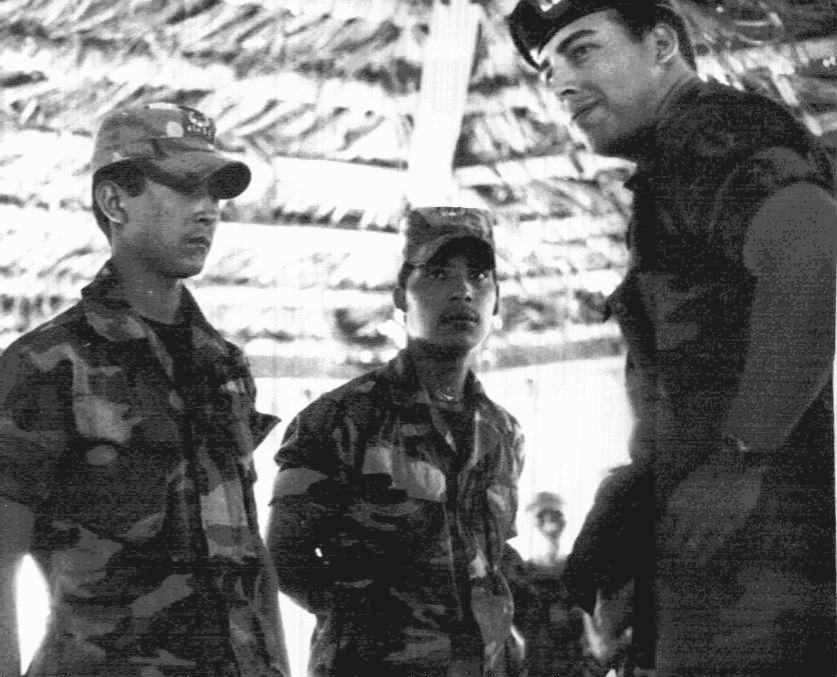Business Courier | By: Paula Norton
CEO wants contributions to improve world around him.
Mike Robinson’s marketing and media firm is small but brings cultural and linguistic expertise to the table for clients.
And he and his team “don’t like to lose.” Mike Robinson grew up in Mexico and went on to a career as an officer in the U.S. Army, where he served in occupied Berlin during the Cold War, as a Special Forces Green Beret and as a counterterrorism officer in Latin America.
Those experiences provided the foundation of his business model for LaVERDAD Marketing & Media, the Hispanic marketing company he founded in 2003. Also a former manager with Procter & Gamble, Robinson has since taken on clients including State Farm Insurance, P&G and Toyota. Robinson shared thoughts on his company’s growth and challenges with Courier contributor Lisa Daumeyer.
Q: How did being a Green Beret prepare you for the business world? Our entire business model was based on what I learned in Special Forces; we were extremely competent and confident. Our models were based on the fact that a small, specialized group of professionals could become subject matter experts with the advantage of being culturally and linguistically competent. Once we became operational, we were considered to be a substantial “force multiplier,” meaning that an elite unit could drop in behind enemy lines, organize a superior indigenous force and help achieve strategic objectives. The same holds true now: at LaVERDAD, we don’t like to lose.
Q: Has the economy forced any changes in your company? What are they? We’ve had to become very market-driven and focused on ensuring we accomplish key business metrics. In 2010, P&G gave me a scholarship to attend the Tuck School of Business at Dartmouth College. I already had earned my master’s degree and thought I knew business metrics quite well. Tuck really taught us to intimately understand managerial finance as opposed to accounting finance. The end result was a targeted growth strategy based on key ratios aimed at growing our business to scale.
Q: What is the most difficult aspect of your job? The space we play in puts us in a position of competition with some very large agencies. We don’t have the infrastructure and deep pockets they have, and many large corporations are consolidating their supplier base, which can create barriers.
Q: What do you like to do when you’re not working? I enjoy philanthropic programs such as being part of Cincinnati Rotary and other efforts related to improving diversity and inclusion in our community and in business. I am honored to have recently been appointed to the board of the United Way.
Q: What are your growth plans for LaVERDAD? We are the newest entrant to the Cincinnati USA Regional Chamber’s Minority Business Accelerator portfolio. The first thing the MBA helped us with is defining and documenting our growth strategy. The key elements are to further penetrate the industries in which we have demonstrated a solid track record. We’re expanding operations in several U.S. markets and South America, with a focus on Brazil.
Q: What’s your definition of a miserable, unsatisfying life? Not making contributions that improve the world around you.
Q: What are some of the biggest challenges you’ve faced in this role? Learning the true success measures and processes involved in making payroll and running a small business. At P&G I had a budget, but we still got paid even if we under-indexed on the number of cases we sold last month. Today, if we don’t make our numbers, someone may be laid off. That someone is a person we know and care about. The good news is that in seven years, I have never had to lay anyone off; so I guess we’re doing all right.
Q: You’ve just been given $100,000 to donate to charity. Which and why? Right now it would be toward the relief effort in Japan. Ongoing it would be to closing the gap in health care, education and economic inclusion with our multicultural communities.

